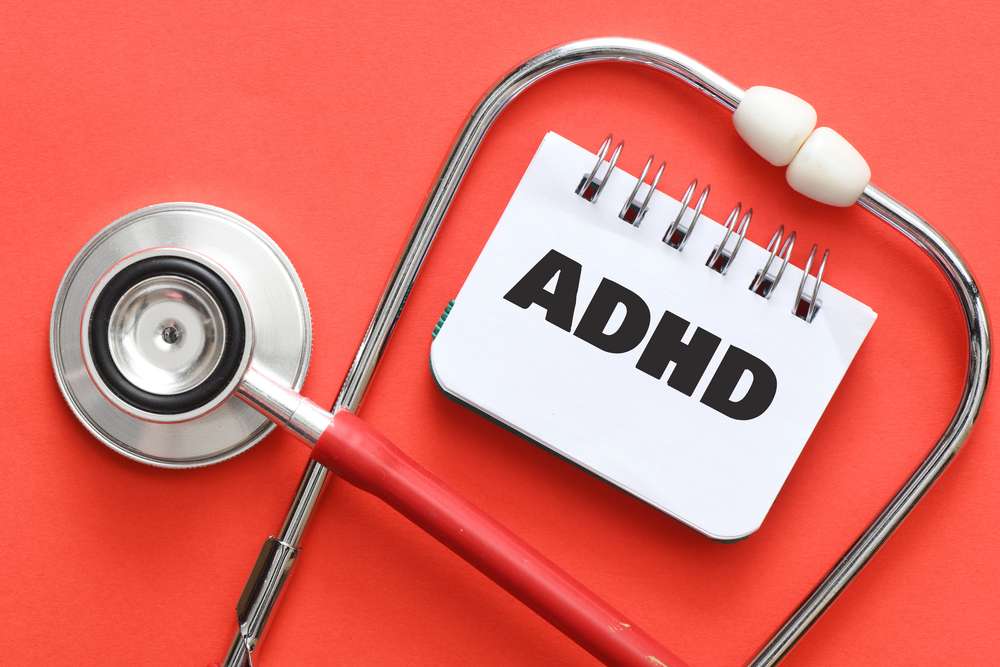2025-08-07

Many adults live for years with symptoms like distraction, restlessness, or emotional overwhelm, without realizing ADHD may be the underlying cause.
Once thought of as a childhood condition, ADHD is now recognized as a lifelong neurodevelopmental disorder that can affect focus, relationships, memory, and self-worth. For those facing these struggles, adult ADHD therapy offers a supportive and structured path toward greater clarity, self-understanding, and lasting progress.
Learning what to expect from therapy can remove some of the uncertainty. From initial evaluation to personalized treatment, each part of the process is shaped by your history, challenges, and goals.
Therapy does not aim to fix who you are. It helps you identify what’s working, understand what’s getting in the way, and create strategies that reflect your needs and strengths.
ADHD in adults can look very different from the way it’s typically portrayed in children. You might not be bouncing off the walls or struggling to sit still in a classroom, but the inner experience can be just as disruptive.
Hyperactivity might feel more like a racing mind that never quiets down, or an inability to relax after a long day. It can show up as impulsive spending, blurting things out in conversations, or constantly shifting between tasks without finishing any of them.
Inattention doesn’t always mean forgetting to do homework. As an adult, it might look like unopened mail piling up, losing track of appointments, or struggling to follow through on important decisions. These challenges can easily spill into every corner of daily life, from strained relationships to missed promotions or mounting anxiety about everyday responsibilities.
Left unaddressed, these patterns often lead to a sense of internal chaos. Many adults describe feeling like they’re constantly “behind,” no matter how hard they try. There’s a persistent frustration that builds up, such as feeling capable yet inconsistent, creative yet disorganized, intelligent yet chronically overwhelmed.
Over time, these emotional weightings can erode confidence and lead to burnout, low self-esteem, or secondary conditions like anxiety or depression.
These aren’t signs of laziness, lack of willpower, or moral failure. They’re symptoms of a nervous system that processes information, time, and emotion differently. Recognizing that difference is the first step toward compassionate self-understanding. And therapy is where that recognition can turn into meaningful change.
Therapy matters because it provides more than coping tools. It offers a safe, structured environment to examine how ADHD has shaped your story so far and how you want to shape what comes next.
You can explore the roots of self-doubt, unpack experiences of masking or misunderstanding, and identify strengths that may have gone unnoticed because of how hard you’ve had to work just to get by. Most importantly, you’ll start building a toolbox of strategies that are tailored to your brain, your lifestyle, and your personal goals.
When therapy is grounded in evidence and delivered with empathy, it empowers you to move from self-criticism to self-leadership. Instead of trying to “keep up” with a world that wasn’t built with your brain in mind, you’ll learn how to navigate it on your terms – more aware, more equipped, and more at peace with who you are.
Before treatment begins, a thorough evaluation is usually the first step. This process involves more than identifying symptoms. It looks at your developmental history, cognitive functioning, and emotional patterns.
In a setting like Thought Wise LLC, evaluations for adult ADHD are structured and evidence-based. Areas such as executive function, memory, attention, and emotional regulation are explored in detail. The evaluation also considers other factors that may overlap with ADHD symptoms, such as anxiety, trauma, or learning differences.
Receiving a diagnosis in adulthood can feel emotional, but for many, it brings clarity. Lifelong patterns begin to make sense, offering relief and a more compassionate view of the self. This understanding becomes the foundation for effective therapy.
One of the first things therapy explores is what you want to work on. Adult ADHD is not one-size-fits-all. For some, time management may be the main challenge. For others, it’s emotional dysregulation, forgetfulness, or low motivation.
The therapeutic process is collaborative. You’ll work with a trained professional to define goals that make a real difference in your daily functioning.
These might include improving task initiation, reducing procrastination, strengthening relationships, or gaining clarity on long-term decisions. The pace and structure of therapy will adapt as your needs evolve.
Effective adult ADHD therapy uses a variety of tools to meet your specific needs. Cognitive Behavioral Therapy (CBT) is one of the most common approaches. It helps you identify unhelpful thought patterns and develop more constructive responses.
CBT also supports executive function. If you often feel paralyzed by overwhelming tasks, therapy can help you break those tasks down and challenge beliefs like “I’ll never get this done.” The goal isn’t just productivity. It’s learning how to reduce the emotional friction that blocks action.
Other methods used in therapy include mindfulness, behavioral strategies, and psychoeducation. You’ll gain insights into how ADHD affects your thinking and learn to manage it using external reminders, structured routines, and tools like visual scheduling or movement-based resets.
These strategies gradually become part of a personalized system that supports focus, emotional balance, and confidence.
Many adults with ADHD carry emotional weight from years of feeling misunderstood. Therapy helps unpack those experiences and reshape how you see yourself.
Grief over missed opportunities, shame from past mistakes, or self-doubt may all come to the surface. These emotions are common, and therapy provides a safe place to explore them.
In this space, you can begin to see your story through a different lens. Rather than viewing past struggles as personal failings, therapy highlights your persistence and creativity. This shift allows you to move forward with greater resilience and clarity.
Some adults wonder if therapy is enough. While therapy alone can be effective, combining it with medication often brings the best results.
Stimulant and non-stimulant medications can help improve focus and reduce impulsivity, but they don’t teach organizational skills or emotional regulation. That’s where therapy plays a vital role.
Together, medication and therapy offer complementary support. Medication can reduce mental noise, so therapy can be more productive. At the same time, therapy equips you with tools that last beyond the effects of medication. If you choose to use both, your therapist and prescriber can coordinate care for better outcomes.
One of the most common hurdles for adults with ADHD is following through on appointments or routines. That’s why accessible care matters. Teletherapy removes barriers like commuting, parking, or tight schedules, which makes it easier to show up and stay consistent.
With secure online sessions, you can receive support from the comfort of your home. This format works especially well for ADHD therapy, as it can be customized to fit around work, family, and fluctuating energy levels.
Virtual sessions still maintain the structure and personal connection of in-person therapy, while offering greater flexibility and convenience.
Progress in adult ADHD therapy isn’t linear. There may be weeks when you feel totally on track, and others when everything feels hard again. This is normal. Setbacks aren’t signs of failure; they’re part of the learning curve.
The goal of therapy is not perfection. It’s sustainable growth. Over time, many adults report improvements not just in focus or productivity, but in relationships, confidence, emotional resilience, and life satisfaction.
Expect therapy to shift with your needs. Some people benefit from weekly sessions for several months, while others prefer intermittent support over the long term. What matters most is that the process respects your pace and aligns with your personal goals.
The therapeutic relationship is a key part of success. ADHD therapy requires not only clinical knowledge, but also empathy, adaptability, and an understanding of neurodiverse experiences. You should feel safe being honest about your challenges and confident that your therapist respects your journey.
Trust your instincts. If a therapist’s style or focus doesn’t feel right, it’s okay to explore other options. The right therapist will meet you where you are, help you build on your strengths, and support you through the ups and downs of change.
Adult ADHD therapy is more than symptom management. It’s an opportunity to rediscover your capabilities, reclaim your time, and rewrite old narratives. Through structured support, tailored strategies, and compassionate care, therapy can become a powerful tool in transforming daily frustration into lasting progress.
At Thought Wise LLC, we specialize in adult ADHD evaluations and therapy that go beyond the surface. Our team is committed to helping you navigate ADHD with insight, dignity, and tools that make life feel more manageable.
From virtual sessions to in-depth neuropsychological assessments, we’re here to support your growth, wherever you are in the process.
Learn more or schedule your first consultation.

ThoughtWise Clinical Psychology and Neuropsychology provides quality services that guide treatment, enrich life, and enhance our overall mental health and cognitive abilities in Jacksonville and throughout the state of Florida. On their blog, they share insightful tips on managing and improving mental health and clarity in day to day life.

Contact us today to see if Thought Wise and our clinical psychologists are the right fit for your needs.